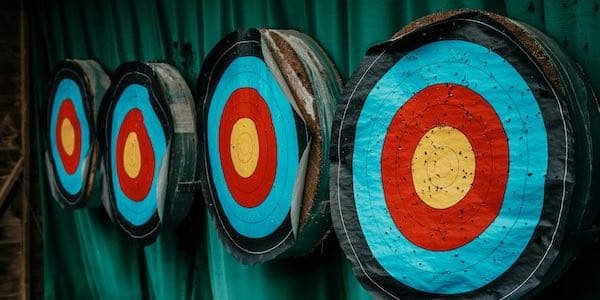Your weight loss journey is a transformative decision that requires a combination of dedication, mindful choices, and sustainable habits. In this article, we will delve into five tried-and-true tips that not only aid in shedding unwanted pounds but also contribute to long-term well-being and vitality. Let’s explore these practical strategies to help you achieve your weight loss goals.
1. Mindful Eating: Quality Over Quantity
In the hustle and bustle of daily life, it’s easy to overlook the importance of mindful eating. Rather than fixating solely on calorie counts, focus on the quality of the food you consume. Opt for nutrient-dense, whole foods that nourish your body and provide sustained energy. Cultivate a mindful approach by savoring each bite, paying attention to hunger and fullness cues, and avoiding distractions during meals. By embracing mindful eating, you’ll not only promote weight loss by probably eating fewer calories but also develop a healthier relationship with food.
2. Stay Hydrated: The Power of Water
Often underestimated, hydration plays a pivotal role in weight loss. Drinking an adequate amount of water not only supports overall health but can also help control appetite. Before reaching for a snack, try sipping water first, as thirst is sometimes mistaken for hunger. Incorporate water-rich foods like fruits and vegetables into your diet, and consider starting your meals with a glass of water to promote a sense of fullness. By staying hydrated, you set the stage for a more effective weight loss journey. The amount of water differs by person but a good rule of thumb is drink half of your bodyweight in ounces. Consult with a healthcare professional before you start any weight loss program especially if you have a lot of weight to lose.

3. Regular Physical Activity: Find What You Enjoy
Exercise is a cornerstone of any successful weight loss plan, but it doesn’t have to be a daunting task. Instead of forcing yourself into a routine you dislike, explore various physical activities until you find something you genuinely enjoy. Whether it’s working out at the gym, hiking, swimming, or yoga, The Key is Consistency. Aim for at least 150 minutes of moderate-intensity exercise per week, and don’t forget to include strength training to boost metabolism and preserve lean muscle mass. Making physical activity an enjoyable part of your lifestyle ensures that you’ll stick with it in the long run.
4. Sleep Well: The Overlooked Weight Loss Factor
In the quest for weight loss, the importance of a good night’s sleep is often underestimated. Lack of sleep can disrupt hormonal balance, leading to increased hunger and cravings, especially for sugary and high-calorie foods. Strive for 7-9 hours of quality sleep each night to support your body’s natural processes, including metabolism and appetite regulation. Establish a relaxing bedtime routine, create a comfortable sleep environment, and prioritizing sleep are crucial components of your weight loss strategy.

5. Set Realistic Goals: Patience is Key
One of the most common pitfalls in weight loss journeys is setting unrealistic goals. Instead of fixating on rapid results, focus on creating sustainable habits that contribute to long-term success. Break your larger goal into smaller, achievable milestones, celebrating each accomplishment along the way. This approach not only boosts motivation but also fosters a positive mindset. Remember, weight loss is a gradual process, and patience is the key to lasting success.
Conclusion: A Holistic Approach to Weight Loss
Your weight loss journey requires a holistic approach that goes beyond mere calorie counting. Incorporating mindful eating, staying hydrated, engaging in enjoyable physical activity, prioritizing sleep, and setting realistic goals paves the way for sustainable weight loss and overall well-being. Remember, it’s not just about shedding pounds; it’s about cultivating a healthy, balanced lifestyle that supports your journey to a happier and more vibrant you. We’re happy to talk more about your individual challenges and goals.. Send us a note or schedule a Free Consultation to get started. Embrace these tips, stay consistent, and celebrate the positive changes you make on the path to a healthier and more fit version of yourself.
Frequently Asked Questions (FAQs)
Why is mindful eating important for weight loss?
Mindful eating is important for weight loss because it helps you become more aware of what and how much you eat. By focusing on the quality of your food and paying attention to hunger and fullness cues, you’re less likely to overeat and more likely to choose nutrient-dense foods. This approach fosters a healthier relationship with food and supports sustainable weight loss by promoting better eating habits.
How much water should I drink to support weight loss?
The amount of water you should drink varies depending on factors like your body weight, activity level, and climate. A general guideline is to drink half your body weight in ounces of water daily. For example, if you weigh 150 pounds, aim to drink about 75 ounces of water each day. Staying hydrated can help control appetite, reduce cravings, and support overall metabolic function, making it easier to lose weight.
What type of exercise is best for weight loss?
The best exercise for weight loss is one that you enjoy and can stick with consistently. A combination of cardio (such as walking, running, or swimming) and strength training is ideal for burning calories, boosting metabolism, and preserving lean muscle mass. Aim for at least 150 minutes of moderate-intensity exercise per week, and include strength training exercises two to three times a week to optimize your weight loss efforts.
How does sleep affect weight loss?
Sleep plays a critical role in weight loss by regulating hormones that control hunger and appetite. Lack of sleep can lead to an increase in ghrelin (the hunger hormone) and a decrease in leptin (the satiety hormone), resulting in increased cravings, especially for high-calorie and sugary foods. Getting 7-9 hours of quality sleep each night helps maintain hormonal balance, supports metabolism, and reduces the likelihood of overeating, making it easier to achieve your weight loss goals.
Why is it important to set realistic weight loss goals?
Setting realistic weight loss goals is important because it helps you stay motivated and avoid frustration. Unrealistic goals can lead to disappointment and may cause you to give up if you don’t see quick results. By setting smaller, achievable milestones, you can celebrate your progress, stay positive, and create sustainable habits that contribute to long-term success. Weight loss is a gradual process, and patience is key to achieving and maintaining your desired results.
Can I lose weight without exercise?
While it’s possible to lose weight without exercise by focusing on diet alone, incorporating regular physical activity into your routine enhances weight loss results. Exercise not only helps you burn more calories but also boosts your metabolism, improves muscle tone, and promotes overall health. Additionally, physical activity can help prevent muscle loss while dieting, ensuring that the weight you lose is primarily fat. A combination of diet and exercise is the most effective way to achieve and maintain weight loss.
What are some tips for staying motivated during my APPROACH FOR LOSING weight ?
- Set small, achievable goals: Break down your larger goal into smaller milestones to celebrate along the way.
- Track your progress: Keep a journal or use an app to monitor your food intake, exercise, and weight loss.
- Find a support system: Share your goals with friends, family, or a support group to stay accountable and encouraged.
- Focus on non-scale victories: Celebrate improvements in energy levels, fitness, or how your clothes fit, rather than just the number on the scale.
- Reward yourself: Treat yourself to non-food rewards, such as a new workout outfit or a relaxing activity, when you reach a milestone.
What are the benefits of staying hydrated beyond weight loss?
Staying hydrated offers numerous benefits beyond weight loss, including:
- Improved digestion: Water aids in the digestion process and helps prevent constipation.
- Better skin health: Adequate hydration keeps your skin looking healthy and glowing.
- Increased energy levels: Dehydration can lead to fatigue, so staying hydrated helps maintain energy throughout the day.
- Enhanced mental clarity: Proper hydration supports cognitive function and concentration.
- Temperature regulation: Water helps regulate your body temperature, especially during exercise or in hot weather.
How can I make healthy eating more convenient?
Making healthy eating more convenient involves planning and preparation:
- Meal prep: Prepare meals and snacks in advance to avoid unhealthy choices when you’re short on time.
- Stock healthy staples: Keep your pantry and fridge stocked with healthy options like fruits, vegetables, lean proteins, and whole grains.
- Choose simple recipes: Opt for recipes with few ingredients and quick preparation times to make healthy eating easier.
- Use portion control: Invest in containers or tools that help you control portions, so you don’t overeat.
What should I do if I hit a weight loss plateau?
Hitting a weight loss plateau is common and can be frustrating, but there are ways to overcome it:
- Reassess your calorie intake: As you lose weight, your calorie needs decrease. Adjust your calorie intake to match your new weight.
- Change your workout routine: Incorporate new exercises or increase the intensity of your current routine to challenge your body in different ways.
- Increase your protein intake: Higher protein intake can boost metabolism and help preserve lean muscle during weight loss.
- Stay hydrated and get enough sleep: Ensure you’re drinking enough water and getting adequate sleep to support metabolism and recovery.
Is it okay to have cheat meals or days while trying to lose weight?
Yes, having an occasional cheat meal or day can be okay as long as it’s done in moderation. Cheat meals can help satisfy cravings, prevent feelings of deprivation, and may even boost your metabolism temporarily. However, it’s important to get back on track with your healthy eating plan afterward. The key is balance—enjoy your treats without overindulging, and maintain overall consistency with your weight loss efforts.
What role do stress and emotions play in weight loss?
Stress and emotions can significantly impact weight loss. High levels of stress can lead to emotional eating, cravings for unhealthy foods, and hormonal imbalances that make it harder to lose weight. Cortisol, a stress hormone, can increase appetite and promote fat storage, particularly in the abdominal area. Managing stress through techniques like exercise, meditation, or hobbies is crucial for maintaining a healthy weight and overall well-being. Recognizing and addressing emotional triggers can help you stay on track with your weight loss goals.







